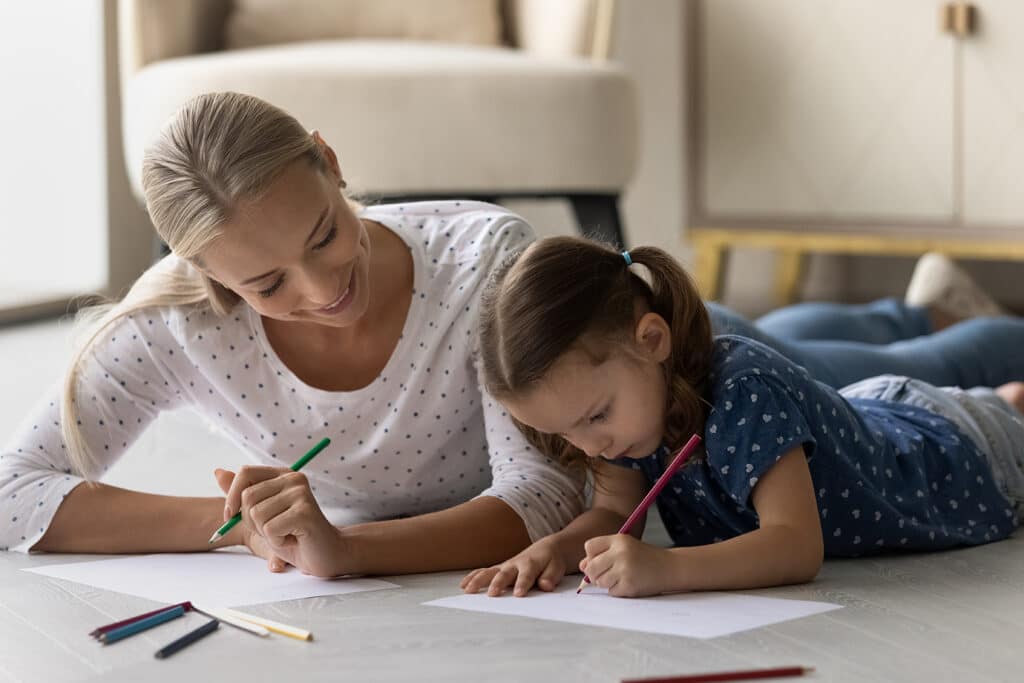New York Child Custody Overview From NYC’s Top Custody Lawyer
Protecting families and their children for 30+ years in New York City, Brooklyn and Manhattan.
What you need to know about Child Custody in New York
New York is a complicated state when it comes to laws regarding your child. At Brian D. Perskin & Associates, our New York child custody attorneys have over 30 years of experience with these challenging cases. We’re happy to provide you with an overview of child custody in New York so you’re prepared, sharp, and ready to take on whatever may be tossed your way.
Types of Child Custody
You can have joint, shared, legal, physical, or sole custody. The type of custody awarded will be decided in the child's best interest. We can help set your expectations for success.
Modification
Circumstances can change at any moment and so can a parenting plan. If you have an existing parenting plan that requires modification, our attorneys can help.
Hiring a New York Attorney
You want just as much time with your children as your spouse does. It is our mission to safeguard your parenting time with your children and secure your future.
How is Custody Determined in New York?
When a case is brought to the New York court, the court will try to accommodate the best interests of the child and choose the environment that offers the most stability. Factors that influence the court’s decision include:
- The child’s age, sex, and mental and physical health and wellbeing
- The parent’s lifestyle & Mental and Physical Health
- The relationship and emotional bond between the parent and child
- The parent’s ability to provide the child with food, shelter, clothing, and medical care
- The child’s regular routine & school education
- The child’s preference, if the child is above a certain age (this is usually around age 12)
- The ability and willingness of the parent to encourage communication on parenting for both parties.
Our experienced team of New York child custody attorneys knows how contentious child custody cases can be. We also know that the best solution is usually a decision that is agreed upon by both parents and the child. With our up-to-date legal knowledge and the best advice possible, your New York child custody attorney at Brian D. Perskin & Associates can make custody decisions much easier for you and your family.

Child Custody Laws in New York
When dealing with child custody in New York, it’s important to understand that custody is divided into two main categories: legal custody and physical custody. Both types of custody are evaluated and determined based on what is in the best interest of the child.
Legal Custody in New York
Legal custody refers to the right and responsibility of a parent to make significant decisions about their child’s life. These decisions encompass various aspects, including:
- Medical Decisions: Choosing healthcare providers, consenting to surgeries, and making other critical medical choices.
- Educational Decisions: Determining the child’s educational path, including selecting schools, extracurricular activities, and special education needs.
- Religious Decisions: Deciding on the religious upbringing of the child, including participation in religious activities and education.
- General Welfare Decisions: Making decisions related to the child’s overall well-being, including travel, discipline, and moral development.
In New York, legal custody can be awarded as either sole legal custody or joint legal custody. With sole legal custody, one parent has the exclusive right to make these important decisions. Alternatively, joint legal custody allows both parents to share the responsibility and collaborate on significant decisions affecting the child’s life.
Physical Custody in New York
Physical custody pertains to where the child lives and which parent is responsible for the day-to-day care and supervision of the child. Similar to legal custody, physical custody can also be classified into two types: joint physical custody and sole physical custody.
Joint Physical Custody
- Equal Residency: In joint physical custody, the child resides with each parent for a roughly equal amount of time. This arrangement aims to ensure that the child maintains a strong, ongoing relationship with both parents.
- Shared Responsibilities: Both parents share the responsibilities of daily childcare, including meal preparation, transportation to and from school, and other routine activities.
- Flexibility and Communication: Joint physical custody requires a high level of cooperation and communication between parents to coordinate schedules and responsibilities effectively.
Sole Physical Custody
- Primary Residency: In sole physical custody, the child lives primarily with one parent, who becomes the custodial parent. This parent is responsible for the child’s daily care and routine.
- Visitation Rights: The noncustodial parent is granted visitation rights, allowing them to spend scheduled time with the child. This time can vary in frequency and duration, depending on the court’s determination and the parents’ agreement.
- Stability and Consistency: Sole physical custody provides the child with a stable and consistent living environment, which can benefit their emotional and psychological development.
Understanding the different types of child custody in New York is essential for any parent navigating custody issues. Whether it involves legal custody or physical custody, the primary focus is always on the best interests of the child. At Brian D. Perskin & Associates, our New York child custody attorneys are committed to guiding you through this complex process, ensuring that your rights and your child’s well-being are protected every step of the way.

The Best Interests of the Child Standard in New York
The most important factor in deciding child custody in New York is the best interests of the child. This means the court looks at what will be best for the child’s overall well-being. They consider the child’s emotional and physical needs, the stability of their current living situation, and each parent’s ability to provide a safe, loving, and supportive home. The court also looks at the child’s relationships with siblings and other family members, and how well the parents can work together to meet the child’s needs. By focusing on these factors, the court aims to make decisions that will help the child thrive.
Frequently Asked Questions
There are five types of child custody in New York; sole physical custody, joint physical custody, sole legal custody, and joint legal custody. At Brian D. Perskin & Associates, our goal is to ensure you’re awarded with the type of custody you want, while also ensuring it matches the best interests of the child. Learn More
The custodial parent has primary physical custody and the non-custodial parent doesn’t have primary physical custody, but can still have legal custody. Learn More
Child custody cases are determined based on what the courts deem is in the best interests of the child. Learn More
Legal and physical custody refer to two separate aspects of parenting. Legal custody involves decision-making for the child’s education, health care, and general welfare. Physical custody relates to where the child lives and who provides daily care for the child.
If one parent has sole physical custody, the child primarily resides with that parent, and the other may have scheduled parenting time or child custody and visitation rights through a court order.
A parenting plan outlines how parenting time, holidays, and responsibilities will be shared. It can be negotiated between parents or ordered by the court based on the best interests of the child.
A custody order may include terms about physical and legal custody, parenting time, communication guidelines, and dispute resolution methods.
Even if child custody arrangements are shared, child support may still be ordered to ensure both parents contribute to the child’s financial needs.
Yes, if there is a significant change in circumstances, a parent can petition to modify custody orders or parenting plans to better meet the evolving needs of the child.
BATTLING FOR CUSTODY IN NYC?
One of the greatest challenges you will face during your divorce is determining who gains child custody in New York and the extent of that custody. Battling for child custody in New York City can be a complex and emotionally charged process, but you do not have to face it alone. At Brian D. Perskin & Associates, our New York child custody attorneys are dedicated to fighting for your rights and helping you secure the custody arrangement that you and your child deserve.
Let us fight for your rights and guide you toward a custody arrangement that supports your child’s best interests and fosters a positive future for your family. Contact us today to learn more about how we can assist you in your child custody case.